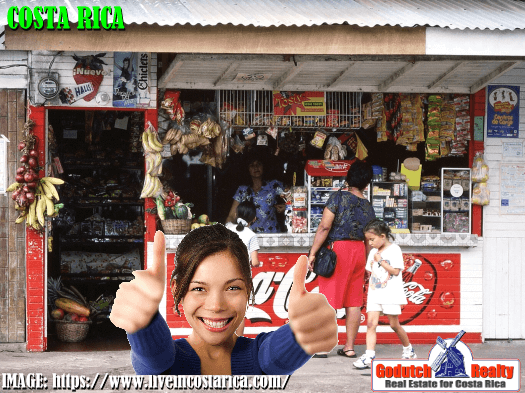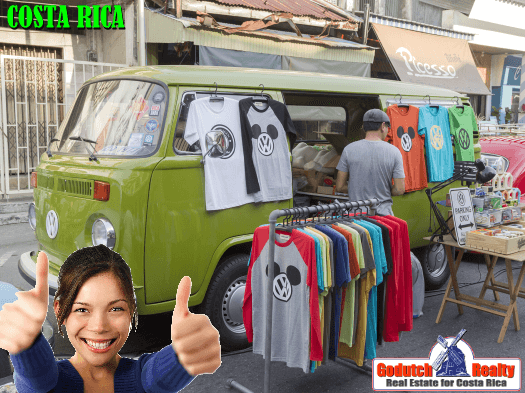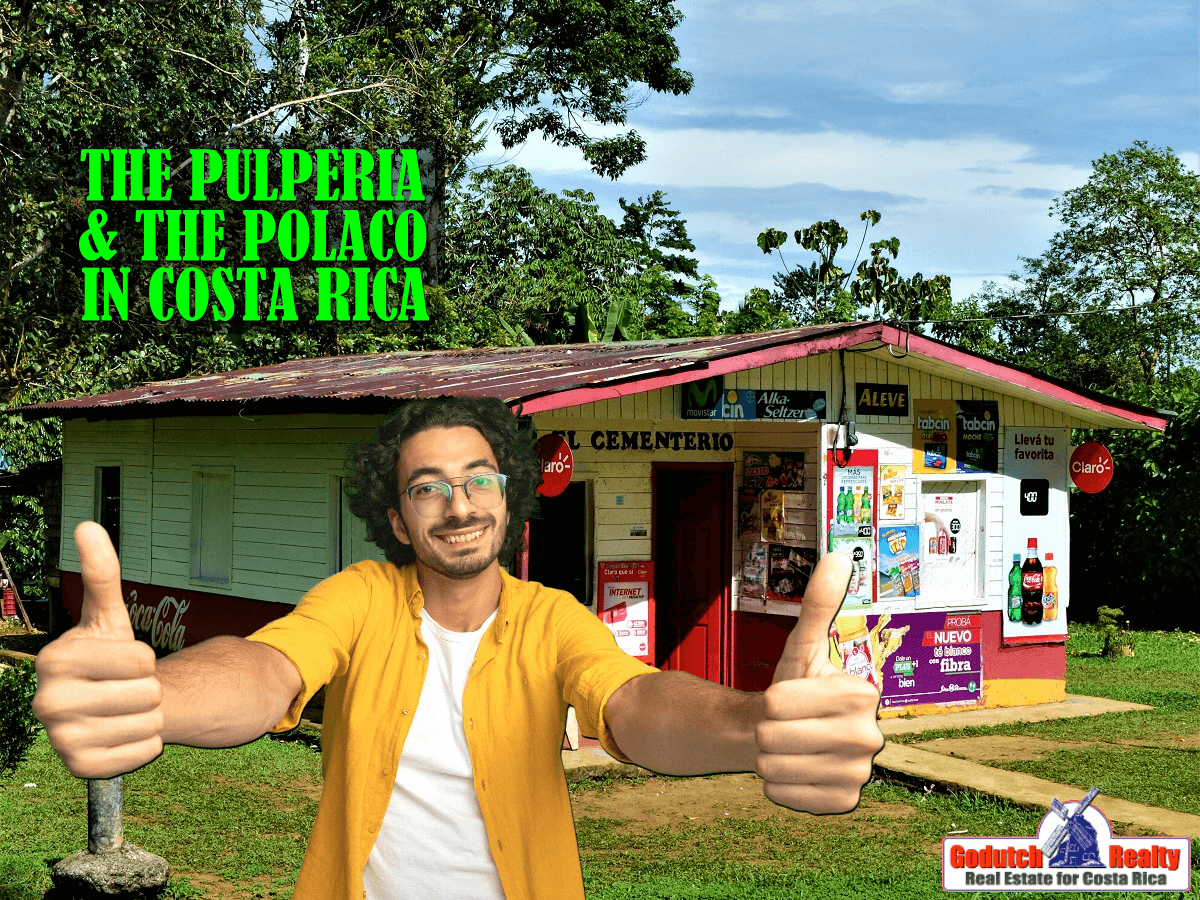Estimated Reading Time: 4 Minutes
The pulpería and the polaco are two typical purchasing methods for Costa Rica’s working class. It is a pity that so much of the flavor of Costa Rica (and other countries) is disappearing with corporate business. I remember well when we walked to the pulperia to get our fresh bread and milk every morning. You can do a lot of grocery shopping at the pulpe. We had 4 pulperias on our street, and they all made a living. Before you purchase a house from us, check the neighborhood where you want to live for pulperias.
Every week, “El Polaco” visits a poor neighborhood of Costa Rica with a car full of merchandise.
The Polaco is a department store on wheels that sells on credit. He mainly offers clothing for women, men, and children. But he also sells coffee makers, shoes, perfume, ceiling fans, and anything his clients need. And if he doesn’t carry it, he will get it for them.

Credit
When I grew up, you didn’t just get credit anywhere; credit had to be earned. Now, in 2025, everyone has a credit card. With the growth of supermarkets, pulperias are disappearing fast, and with that goes the old credit system. It was customary for the lower and middle classes of Costa Rica to purchase their daily shopping on credit. Credit cards have now taken over most of the middle-class market, and the purchasing power of larger companies like Walmart has changed this.
But in the poorer neighborhoods of Costa Rica, you will find pulperias and more Polacos than ever. That’s because many working-class people don’t have access to a regular credit card. There are still many pulperias, although they don’t give any more credit.
The Pulperia
Only 45 years ago, there were few supermarkets in Costa Rica. Locals did their daily grocery shopping at the pulperia or la pulpe, a grocery store smaller than a 7-11. In those days, many couldn’t afford a refrigerator, so they purchased fresh food every day. Products were packaged much smaller than they are now. And the “pulpero” (owner of the pulpería) sold the products by the unit. You could buy just one cigarette there, instead of a whole pack. Then they would purchase on credit and pay on payday. The pulpero would keep track of what everyone in the neighborhood owed in a notebook.
The Polaco
The Polaco, originally immigrants from Poland, gets merchandise from a factory or warehouse, then sells it for weekly payments with just a small down payment and filling out his or her details on the payment card. The person buying the merchandise pays, of course, much more for the convenience of weekly payments. People pay an installment or whatever they can as a credit each week until the debt is paid off. He goes from door to door and from neighborhood to neighborhood in his van or pickup truck. His clients will take weeks to pay for these wares. He keeps track of the money owed to him on a manual card system, which I suppose was the very first credit card.

Local Flavor
The Polaco and the pulperia are part of the local flavor in Costa Rica. You’ll still find them everywhere, mainly in rural and poorer neighborhoods. When moving to Costa Rica and you decide to live in a small town, you will find many customs that your parents or grandparents also had.
You’ll find many customs that are long gone from your life. But in Costa Rica, you will still see them daily. And that is exactly what Costa Rica has to offer: all that good and fun stuff that has long disappeared up north. You will still find it when living in Costa Rica.
Contact us if you want to purchase or sell Costa Rica real estate. Only GoDutch Realty can give you “the Ultimate Costa Rica Real Estate Experience.”























